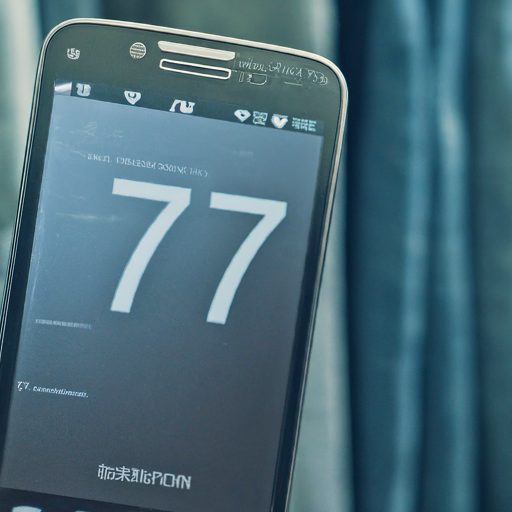In the realm of vision correction, LASIK eye surgery has emerged as a beacon of hope for individuals seeking freedom from glasses and contact lenses. Kaiser Permanente, a renowned healthcare provider, offers LASIK eye surgery as part of its comprehensive vision care services. This article delves into the world of LASIK eye surgery at Kaiser Permanente, exploring its benefits, procedures, candidacy, and patient experiences.
Understanding LASIK Eye Surgery
LASIK, or Laser-Assisted In Situ Keratomileusis, is a surgical procedure that reshapes the cornea, the clear front part of the eye, to correct refractive errors such as nearsightedness, farsightedness, and astigmatism. By precisely altering the cornea’s curvature, LASIK allows light to focus accurately on the retina, resulting in improved vision.
Benefits of LASIK Eye Surgery
-
Enhanced Visual Acuity: LASIK offers the potential for significantly improved vision, often eliminating the need for glasses or contact lenses.
-
Improved Quality of Life: Reduced dependence on corrective eyewear can enhance daily activities, sports, and overall quality of life.
-
Rapid Recovery: Most patients experience rapid visual recovery after LASIK, allowing them to resume their normal routines within a short period.
-
Long-Term Results: LASIK results are generally long-lasting, providing years of clear vision.
The LASIK Procedure at Kaiser Permanente
1. Pre-Operative Evaluation
Before undergoing LASIK at Kaiser Permanente, patients undergo a comprehensive eye examination to assess their candidacy. This evaluation includes:
-
Refractive Error Measurement: Determining the degree of nearsightedness, farsightedness, or astigmatism.
-
Corneal Topography: Mapping the shape and thickness of the cornea.
-
Pupil Size Measurement: Assessing pupil size in various lighting conditions.
-
Tear Film Evaluation: Evaluating the quantity and quality of tears.
-
Overall Eye Health Assessment: Ruling out any underlying eye conditions that may affect LASIK outcomes.
2. The LASIK Surgery
The LASIK procedure itself is typically performed on an outpatient basis and takes approximately 10-15 minutes per eye. The steps involved include:
-
Anesthesia: Numbing eye drops are administered to ensure patient comfort during the procedure.
-
Corneal Flap Creation: A thin flap is created on the surface of the cornea using a femtosecond laser or a microkeratome.
-
Corneal Reshaping: The surgeon uses an excimer laser to reshape the underlying corneal tissue according to the patient’s specific refractive error.
-
Flap Repositioning: The corneal flap is repositioned and adheres naturally without the need for stitches.
3. Post-Operative Care
After LASIK, patients are provided with post-operative instructions, including:
-
Protective Eye Shields: Wearing eye shields at night for the first few days to prevent accidental rubbing.
-
Eye Drops: Using prescribed eye drops to prevent infection and inflammation.
-
Follow-Up Visits: Attending follow-up appointments with the eye surgeon to monitor healing and visual progress.
Candidacy for LASIK at Kaiser Permanente
Not everyone is a suitable candidate for LASIK. Kaiser Permanente’s eye surgeons carefully evaluate each patient to determine their eligibility. General criteria for LASIK candidacy include:
-
Age: At least 18 years old with stable vision for at least one year.
-
Refractive Error: Within the treatable range for LASIK.
-
Corneal Thickness: Adequate corneal thickness to ensure safe flap creation and reshaping.
-
Overall Eye Health: Absence of any active eye diseases or conditions that may compromise healing or outcomes.
-
General Health: Good overall health with no medical conditions that may affect healing.
-
Realistic Expectations: Understanding the potential benefits and risks of LASIK and having realistic expectations about the outcomes.
Patient Experiences with LASIK at Kaiser Permanente
Numerous patients have shared their positive experiences with LASIK eye surgery at Kaiser Permanente. Many report significant improvements in their vision, reduced reliance on glasses or contact lenses, and enhanced quality of life.
- “Life-Changing Experience”
“Undergoing LASIK at Kaiser Permanente was a life-changing experience for me. I no longer have to fumble for my glasses in the morning or worry about contact lens discomfort. My vision is clear and crisp, and I’m so grateful for the exceptional care I received from the Kaiser Permanente team.” – Sarah M.
- “Freedom from Glasses”
“I’ve worn glasses since I was a child, and LASIK has given me the freedom I’ve always dreamed of. The procedure was quick and painless, and my recovery was smooth. I can now enjoy activities like swimming and hiking without the hassle of glasses or contact lenses.” – John D.
- “Exceptional Care and Expertise”
“From the initial consultation to the post-operative follow-up, the Kaiser Permanente team provided exceptional care and expertise. They answered all my questions, addressed my concerns, and made me feel comfortable throughout the entire process. I highly recommend LASIK at Kaiser Permanente to anyone considering vision correction surgery.” – Emily R.
Conclusion
LASIK eye surgery at Kaiser Permanente offers a promising path to clear vision and freedom from glasses or contact lenses. With its advanced technology, experienced eye surgeons, and comprehensive patient care, Kaiser Permanente provides a safe and effective LASIK experience. If you’re considering LASIK, schedule a consultation with a Kaiser Permanente eye surgeon to discuss your candidacy and explore the possibilities for improved vision.
Additional Considerations
-
Cost: The cost of LASIK at Kaiser Permanente may vary depending on individual needs and insurance coverage. It’s essential to discuss the financial aspects with your eye surgeon and explore any available financing options.
-
Alternatives to LASIK: While LASIK is a popular choice for vision correction, other options may be available depending on your specific needs and circumstances. These include PRK (Photorefractive Keratectomy), implantable contact lenses (ICLs), and refractive lens exchange (RLE).
-
Risks and Complications: Although LASIK is generally safe and effective, it’s crucial to be aware of potential risks and complications. These may include dry eyes, glare or halos, undercorrection or overcorrection, and rarely, more serious complications. Your eye surgeon will discuss these risks in detail during your consultation.
-
Long-Term Follow-Up: Even after successful LASIK, it’s important to continue regular eye exams to monitor your overall eye health and address any potential issues that may arise in the future.
By carefully considering these factors and discussing your options with a qualified eye surgeon, you can make an informed decision about whether LASIK eye surgery at Kaiser Permanente is the right choice for you.
Read More: SelectQuote Home Insurance: The Ultimate Guide to Protecting Your Most Valuable Asset





